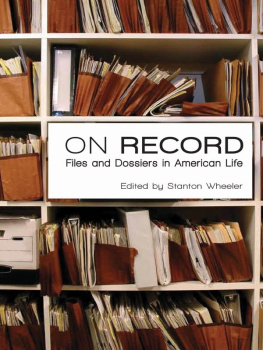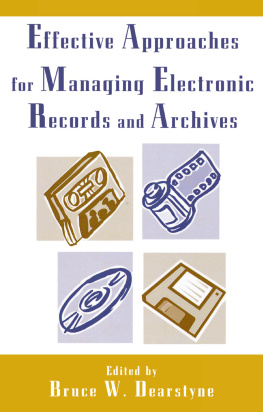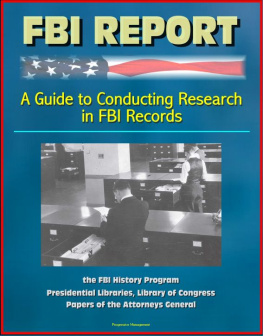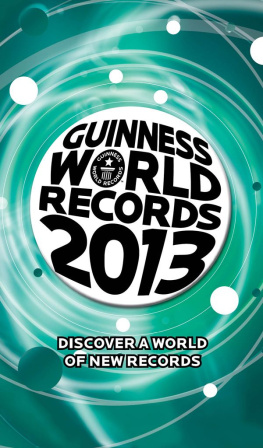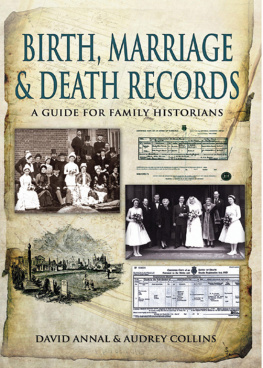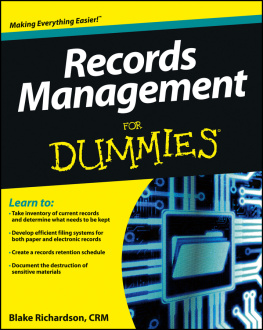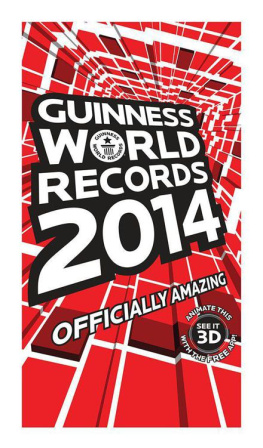
RUSSELL SAGE FOUNDATION was established in 1907 by Mrs. Russell Sage for the improvement of social and living conditions in the United States. In carrying out its purpose the Foundation conducts research under the direction of members of the staff or in close collaboration with other institutions, and supports programs designed to improve the utilization of social science knowledge. As an integral part of its operations, the Foundation from time to time publishes books or pamphlets resulting from these activities. Publication under the imprint of the Foundation does not necessarily imply agreement by the Foundation, its Trustees, or its staff with the interpretations or conclusions of the authors.
This study was originally supported by Russell Sage Foundation.
Second printing 2016
Copyright 1976 by Transaction Publishers, New Brunswick, New Jersey.
Originally published 1969 by Russell Sage Foundation.
All rights reserved under International and Pan-American Copyright Conventions. No part of this book may be reproduced or transmitted in any form or by any means, electronic or mechanical, including photocopy, recording, or any information storage and retrieval system, without prior permission in writing from the publisher. All inquiries should be addressed to Transaction Publishers, 10 Corporate Place South, Suite 102, Piscataway, New Jersey 08854. www.transactionpub.com
This book is printed on acid-free paper that meets the American National Standard for Permanence of Paper for Printed Library Materials.
Library of Congress Catalog Number: 75-43359
ISBN: 978-0-87855-607-6
eBook: 978-1-4128-4511-3
Printed in the United States of America
Library of Congress Cataloging-in-Publication Data
Main entry under title:
On record: files and dossiers in American life.
(Law and society; 1) Includes index.
1. Privacy, Right ofUnited StatesAddresses, essays, lectures. 2. Public recordsUnited StatesAddresses, essays, lectures. 3. Personnel recordsAddresses, essays, lectures, 1. Wheeler, Stanton, 1930-1. Title.
JC599.U5048 1976651.5 | 75-43359 |
ISBN 0-87855-607-9 pbk.
Contents
STANTON WHEELER
DAVID A. GOSLIN AND NANCY BORDIER
BURTON R. CLARK
RODOLFO ALVAREZ AND WILBERT E. MOORE
JAMES RULE, DAVID CAPLOVITZ, AND PIERCE BARKER
IVAR BERG AND JAMES SALVATE
H. LAURENCE ROSS
JOSEPH STEINBERG
ROGER W. LITTLE
JESSE ORLANSKY
DON H. ZIMMERMAN
EDWIN M. LEMERT
KAI T. ERIKSON AND DANIEL E. GILBERTSON
ABRAHAM S. GOLDSTEIN
This volume was made possible by a grant from Russell Sage Foundation. The contributions from the Foundation staff, however, go beyond the mere provision of monetary support. A number of my Foundation colleagues provided helpful suggestions and comments, both in the formulation of the general idea of the volume and in the various stages of preparation. I want particularly to thank Lindsey Churchill, who commented on an earlier draft of the Introduction and on a number of the other chapters.
Carol Levine was responsible for copy-editing and the index, and I am much in her debt. Both she and Betty Davison of the Foundation's publications staff were uncommonly helpful.
Christine Valibus Daillet was responsible for a large share of the typing of the manuscript and for communications with the various authors. She deserves credit for a job well done.
Finally, I wish to express my own appreciation to all the authors for their valuable contributions.
S. W.
Rodolfo Alvarez
Assistant Professor of Sociology
Yale University
Pierce Barker
Department of Social Relations
Harvard University
Ivar Berg
Professor of Business Administration
Columbia University
Nancy Bordier
Teachers College
Columbia University
David Caplovitz
Bureau of Applied Social Science Research
Columbia University
Burton R. Clark
Chairman, Department of Sociology
Yale University
Kai T. Erikson
Professor of Sociology
Yale University
Daniel E. Gilbertson
Department of Sociology
Yale University
Abraham S. Goldstein
Professor of Law
Yale Law School
David A. Goslin
Sociologist, Russell Sage Foundation
Edwin M. Lemert
Professor of Sociology
University of California, Davis
Roger W. Little
Associate Professor of Sociology
University of Illinois at Chicago Circle
Wilbert E. Moore
Sociologist, Russell Sage Foundation
Jesse Orlansky
Institute for Defense Analysis
H. Laurence Ross
Professor of Law and Sociology
University of Denver, School of Law
James Rule
Nuffield College, Oxford
James Salvate
Graduate School of Business Administration
Columbia University
Joseph Steinberg
Social Security Administration
Stanton Wheeler
Professor of Law and Sociology
Yale Law School
Don H. Zimmerman
Assistant Professor of Sociology
University of California, Santa Barbara
Stanton Wheeler
A birth certificate documents the arrival of a newborn member of our society and a certificate of death his exit. Prior to his birth a doctor will have recorded his prenatal development, and after his death legal files will record the settlement of his affairs.
Between birth and death there will be recorded many significant events of his life as well as qualities and performances that give his life its distinctive character and shape. Beginning at least with his arrival in school, records will accumulate regarding his budding career; his abilities will be measured, his personality assessed, his performance in school recorded, both in and out of the classroom. If his family is on welfare, there will be additional records; should be run afoul of the police and the courts, there will be other files.
When he reaches adolescence, interest in his vocational abilities and choices will be duly recorded, either through schools or employment agencies. And, when he finally leaves the world of schooling (which may not be until he is in his early thirties), his progress marked by more files in more institutions, new records will be initiated regarding his employment history and his financial affairs. At some point, he will have applied for a social security number, which he will have cause to write down again and again during his life.
Also, at some point, he is likely to marry and need a loan, these events often occurring surprisingly close together. The marriage will be recorded, perhaps to become an issue later if the marriage is dissolved. And his need for a loan, or at least for an established checking account, will start another series of records concerning his financial status, his purchasing habits, and particularly his bill-paying habits.
Most of these paper traces of ones existence and career will be developed for any conventional member of the society. But any special interests or activities are likely to initiate another set of files, a set which the individual will share with fewer others, and indeed, which taken as a whole, might describe him uniquely. Should be enter the military, a whole collection of files will be opened, and similarly for entry into classified occupations, prisons or mental hospitals, psychiatric clinics or probation offices. If he wishes to leave the country, forms for a passport will be filled out; if he stays within the country but harbors foreign ideas, files may develop in intelligence agencies. And if he joins clubs, buys property, stock, or virtually any other goods or services, further entries will be made. Indeed, by the time he is ready to retire, still further records will be made to justify his receiving retirement benefits; and if he has not done so before, he is likely to have a lawyer draw up a will which will become another part of the record upon his death.
Next page
